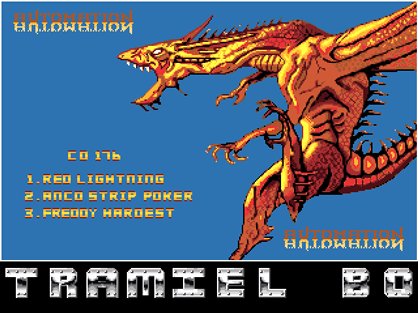Let's get cracking
The fascinating story of how software piracy became an art form
“People confusing the demoscene with warez are mostly journalists,” she continues. “To the games industry, the demoscene is a fishpond of creative and technically talented people. There’s no bad feeling between us and the industry.” Sure enough, development studios often recruit visual effects programmers from the scene. Will Wright has cited the scene as a major inspiration for Spore, and the team behind Max Payne are reportedly former scenesters. Demogroups get together at an annual bash in Germany, where the Scene.org Awards hand out prizes to the best demos of the year. “The demoscene has its codes, its rules, its stars and as a result, its history,” says Cornilleau.

These arty crackers have evolved over time, and now create demos on platforms like mobile phones and iPods, as well as old-school emulators like the ZX Spectrum. But while the demoscene has become a shining example of new media art, piracy has turned all seedy. In the ’90s, BBS gave way to the internet, which revolutionised cracker communications. “The downside was that it exposed many more people to what was previously a little-known activity,” says Garrett. “Many people, often kids who couldn’t join a top-tier group, would start their own group, releasing products of dubious quality that other people wouldn’t touch. There was a surge in quantity and a decline in quality.”
Furthermore, game piracy became a massive legal and moral issue. Law enforcement bodies like the FBI started hounding down and locking up pirates, while gamers became genuinely concerned that piracy could lead to the downfall of the PC game industry. Despite all these concerns, however, the irony is that the cracking scene itself has hardly changed. “The groups who crack, package and release titles have nothing to do with the seedy sites that populate the internet,” says Garrett. “Groups who release titles, release for themselves and for their inner circle. The filtering down of releases onto peer-to-peer networks, websites and into the general population is probably an unfortunate consequence. The problem is not that piracy or the scene has gone dirty, cheap and commercial, but rather that piracy has finally been exposed to the greater world.”
Jun 9, 2008
Sign up to the GamesRadar+ Newsletter
Weekly digests, tales from the communities you love, and more


